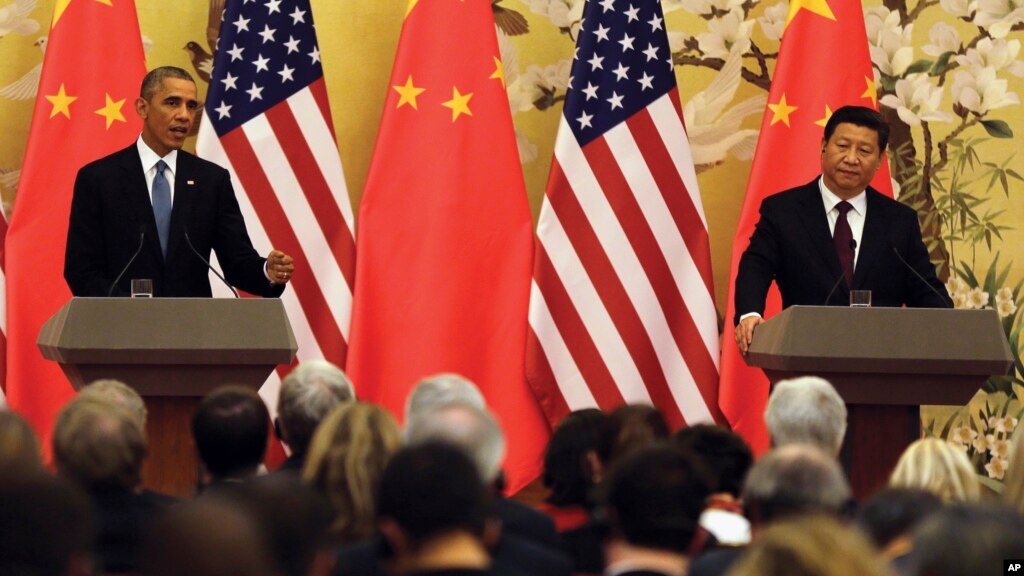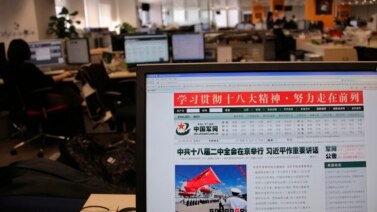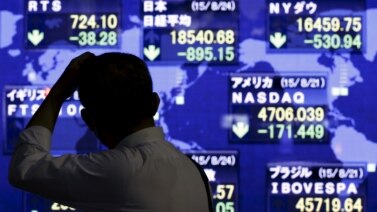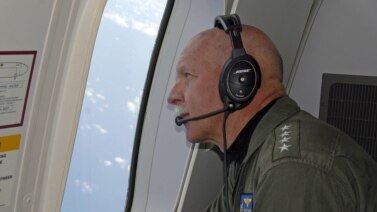
U.S. and Chinese officials have been meeting to discuss difficult issues in preparation for the first official state visit by Chinese leader Xi Jinping to Washington next week.
Cyber-hacking, activities in the South China Sea, and climate change are among the issues between the two countries.
The state visit comes at a time of growing global concern about China’s economic growth and its effects on the world economy. China’s investment in the U.S. has risen sharply to $9.5 billion dollars in 2014. However, that is much less than top foreign investors in the U.S. like Japan and Britain.
President Xi’s visit to Washington will follow a visit to the Pacific coast city of Seattle. The Chinese leader is expected to meet with business leaders in the U.S. technology industry.
“Frank and open exchange about cyber issues”
Chinese and U.S. officials completed four days of meetings on cyber security issues last week. A statement from the Obama administration said U.S. national security adviser Susan Rice had a “frank and open exchange about cyber issues.”
The Chinese delegation also met with Federal Bureau of Investigation Director James Comey and representatives of the Justice, State and Treasury departments and the intelligence community.
The Obama administration is considering targeted sanctions against Chinese individuals and companies for cyber-attacks against U.S. commercial targets. Chinese hackers also have been accused of hacking the U.S. government’s personnel office this year.
Climate change meeting before state visit
Goals related to global climate change are a topic both nations have been discussing for years. China and the United States are the two largest emitters of greenhouse gasses. Those gasses are linked to warming global temperatures and blamed for damaging weather patterns.
Mayors, governors and other leaders from both countries are meeting at the U.S.-China Climate Leaders Summit in Los Angeles. At that meeting, officials discussed plans to reduce carbon emissions that warm the atmosphere.
The summit builds from the Climate Change Working Group established in 2013 and a joint announcement on climate change made by Presidents Obama and Xi in Beijing last November.
The United States has announced a goal of reducing carbon emissions by 26 to 28 percent by 2025. China has set a national goal of reaching peak carbon emissions by 2030. However, the Obama administration says the cities of Beijing and Guangzhou have promised to reach their peak emissions by 2020.
South China Sea tensions continue
Developments in the South China Sea also are expected to be among the points of discussion. Pictures taken for the Center for Strategic and International Studies show a new 3000-meter landing area for aircraft on Mischief Reef. The reef is an artificial island built by China in the Spratly Islands group.
Security experts say the airstrip is big enough to be used by military aircraft. It would be the third airstrip China has placed in the South China Sea. Vietnam, the Philippines, Taiwan and Malaysia also have built airstrips on islands in the disputed waters. However, China’s land reclamation projects in the sea are much larger.
A spokesman for the U.S. Defense Department, Commander Bill Urban, did not comment on the new pictures. But he said the U.S. repeatedly has called for a halt to land reclamation, construction and militarization of the South China Sea. It is estimated that more than $5 trillion in trade passes through the body of water each year.
Rights groups also want President Obama to make human rights an important point of discussion. Nine human rights organizations including Human Rights Watch and Amnesty International signed a joint letter. They expressed deep concern about “the significant erosions to rights during President Xi’s tenure.”
These difficult issues in U.S.-China relations have led to critical comments from Republican candidates for U.S. president. Leading Republican candidate Donald Trump said he would give President Xi “a McDonald’s hamburger” instead of a state dinner. Scott Walker, another candidate, said President Obama “needs to cancel the state visit” altogether.
I’m Mario Ritter.
This story was written from VOA news reports with additional materials from Reuters. Mario Ritter adapted it for VOA Learning English. Hai Do was the editor.
Words in This Story
state visit – n. a formal visit by a head of state to a foreign country at the invitation by that country’s head of state
topic – n. someone or something people talk about
emit – v. to send out
peak – n. the highest level or degree of something
sanctions – n. an action that is taken or an order that is given to force a country to obey international law by limiting or stopping trade
personnel – n. people who work for a company or organization
reclamation – n. to make available for use by changing (a things) condition


